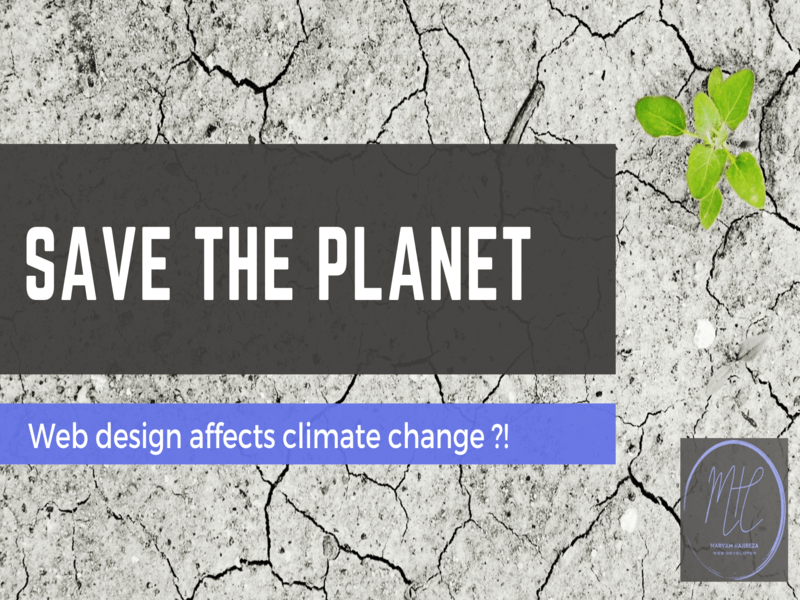
Web design affects climate change ?!
You may not have considered that the Internet also uses electricity, and that's while in most countries of the world fossil fuels are used to generate electricity. In fact, the power consumption of the Internet has reached such a level that its carbon footprint may overshadow global air travel.
In 2018 the Mozilla Internet Health Report states that "sustainability should be a higher priority," especially as the Internet expands into new realms. But today, websites are growing more and more, and as a result, the internet's demand for more energy will grow exponentially.
At the same time, the effects of climate change are getting worse and worse every year. The vast majority of climate scientists attribute the sharp increase in the frequency of extreme weather events around the world to climate change, which they largely attribute them largely to human activities. Although some question this science, even the world's largest oil companies have now accepted it and acknowledged that their business models must change.
You might say that this is not something we can influence; But that's not true, for example, many efforts are being made to improve the state of the web world. The Green Web Foundation has a growing database of web hosts that either make full use of renewable energy or are at least committed to using "carbon neutral" energy. In 2013, the online magazine A List Apart published an article on sustainable web design by James Christie. Over the years, web sustainability experts at the SustainableUX conference have shared their knowledge in various areas of web knowledge.
So, other than providing servers with renewable energy, what else can web developers do about climate change?
You can not manage what you can not measure
Perhaps the best news when it comes to making websites more stable is that site performance, user experience, and stability are all intertwined. The main criterion for measuring the stability of a digital product is its energy consumption. This includes work performed by the server, client, and intermediary communication networks that transfer data between the two. Simply put, the lower the Internet usage of our website, the fewer network requests it sends, and the fewer CPU resources it takes up, the more efficient our website will be.
As a result, by carefully examining your website, you will not only help save the planet but also improve your website. Among the benefits that you will achieve are the following:
- Better website performance
- A more user-friendly website
- The improvement of website accessibility
- A more server friendly website
- Optimization for search engines will improve
Some may say that trying to stabilize the site won't have much usefulness or that the effect won't be that significant. But not only does this help make the website more environmentally friendly, but also sustainable web design is basically the best way to design the web and will ultimately benefit you; Also, do not forget that your contribution to the environment, no matter how small, is better than doing nothing.






